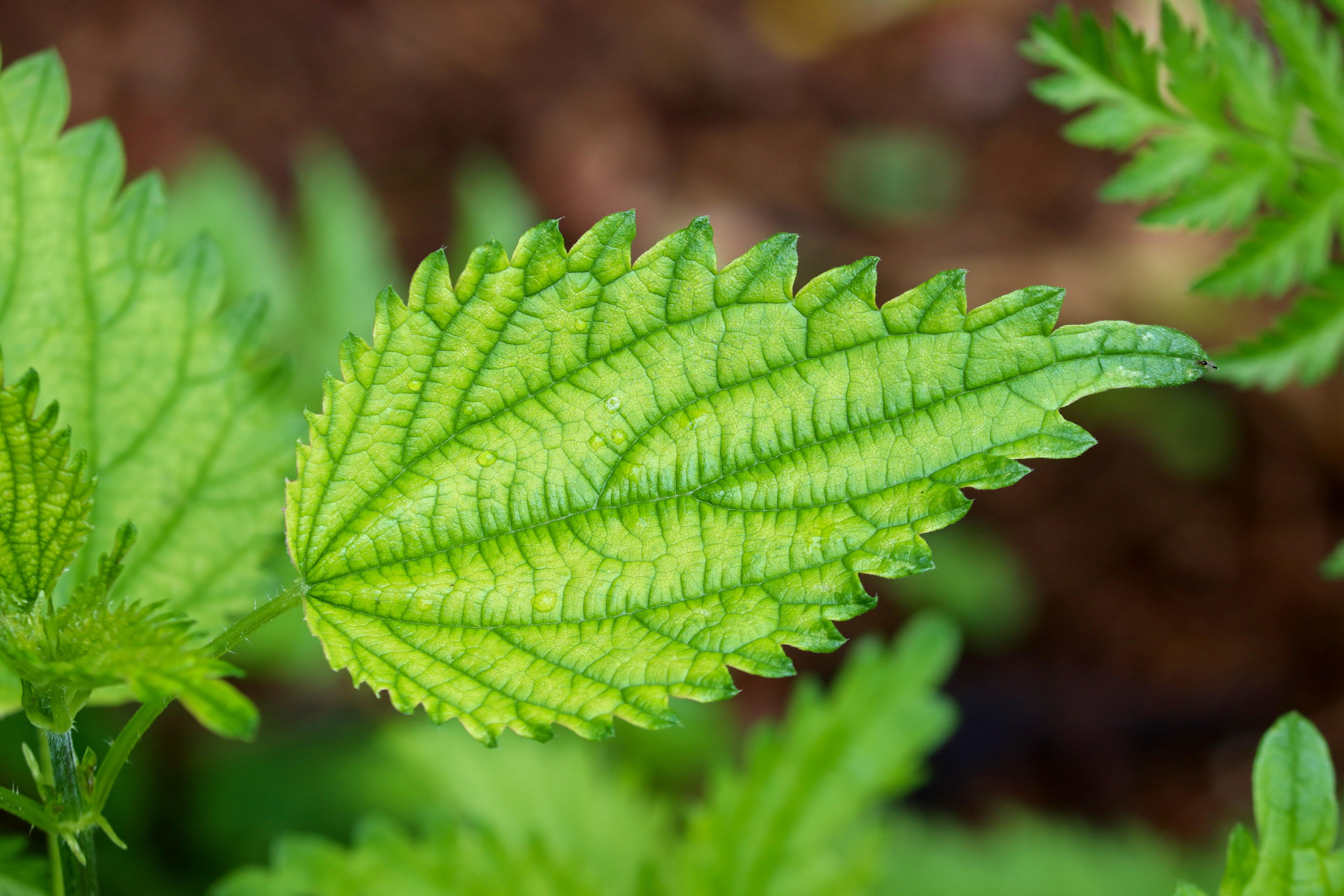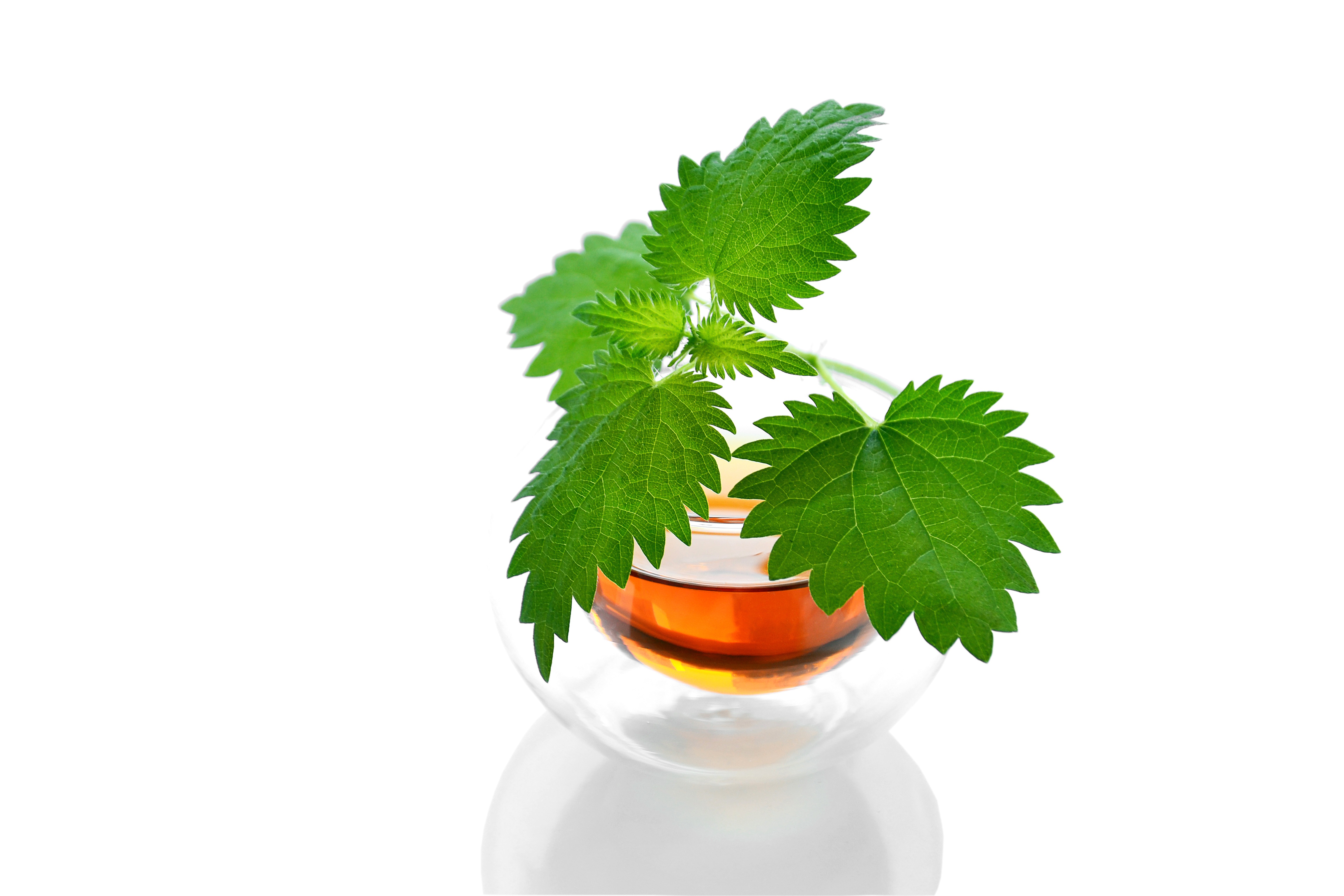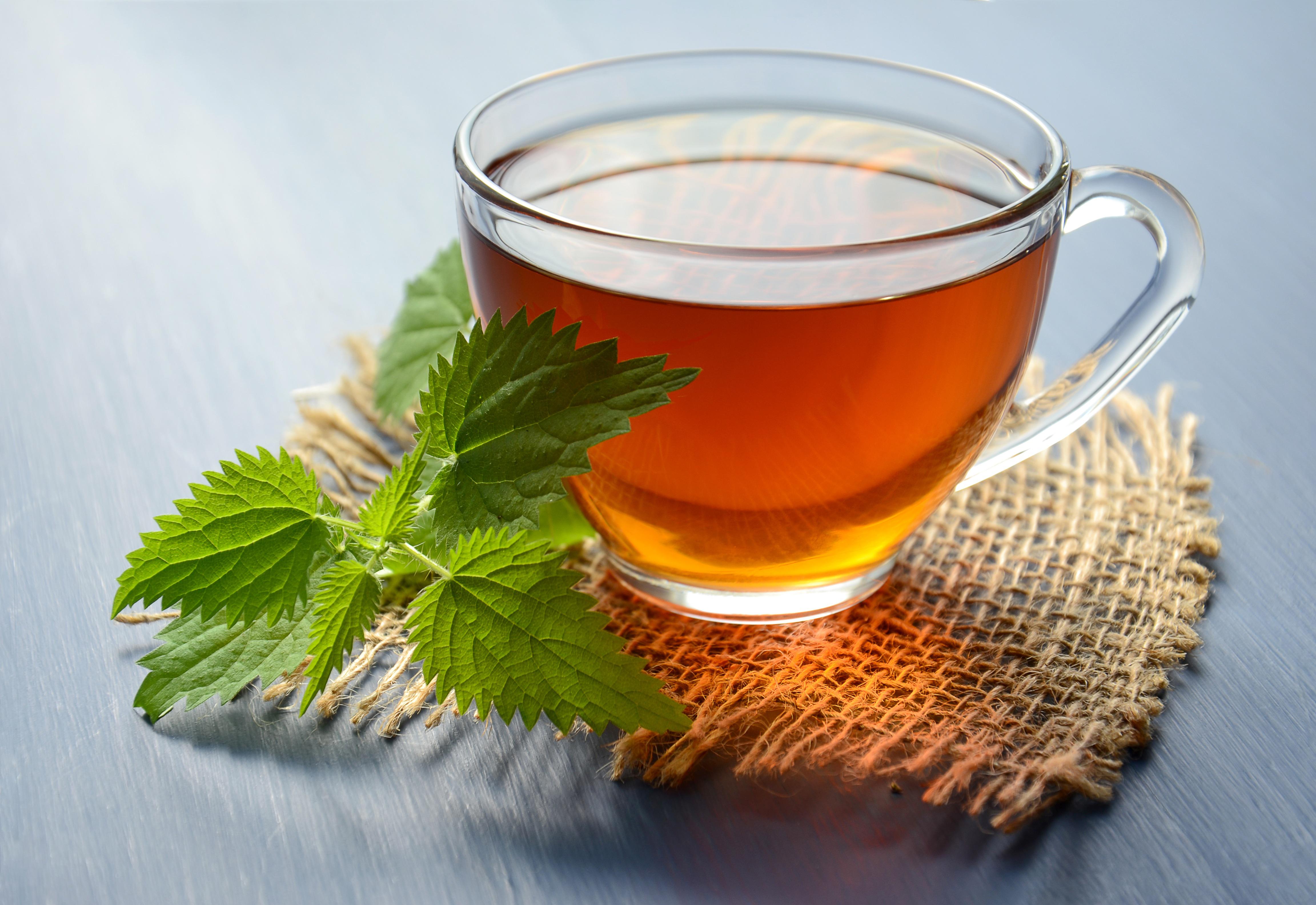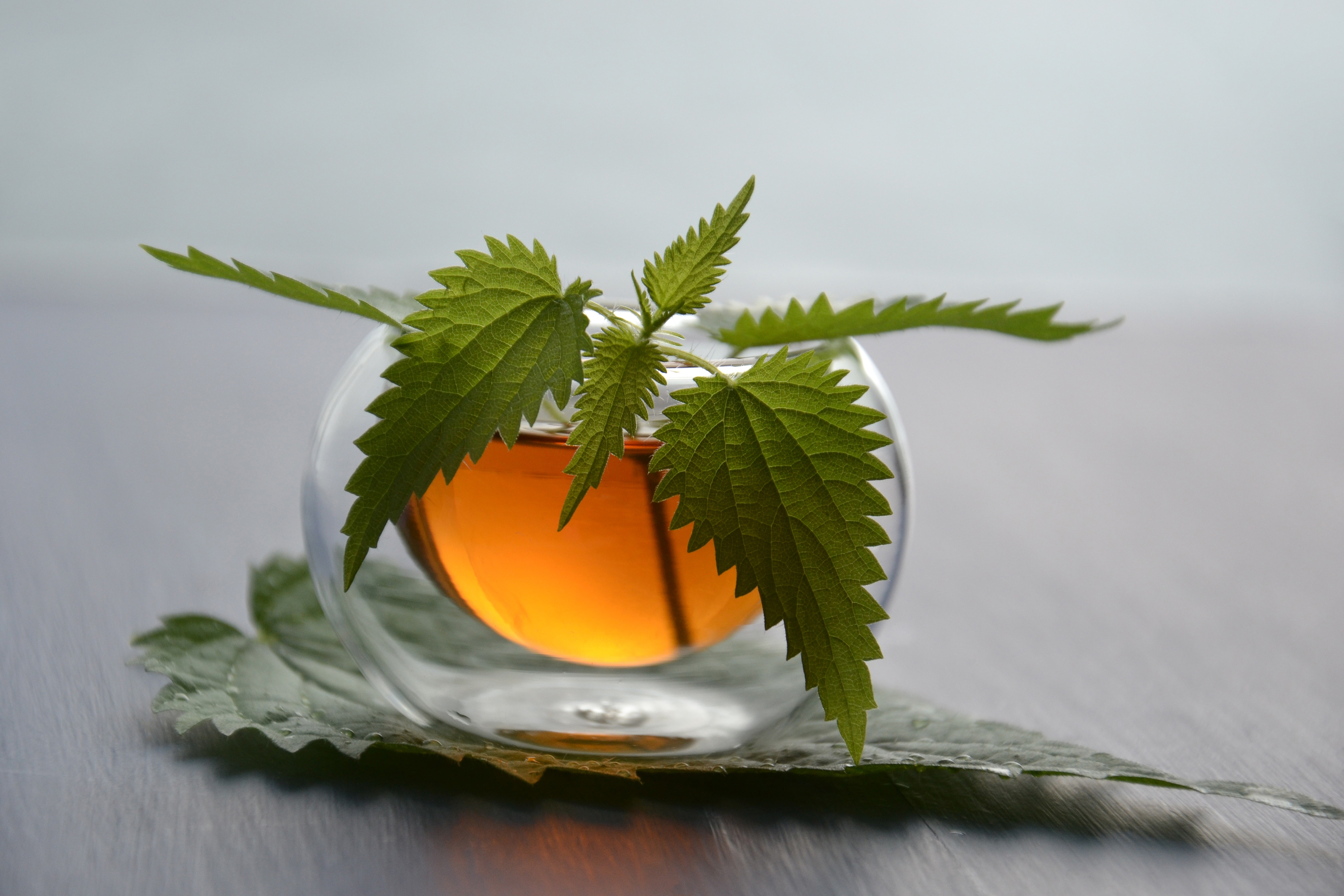Nettle Tea Benefits- All The Important Benefits You Need To Know!
Nettle tea benefits are worth mentioning if you are a tea lover. Even though you might avoid nettle plants when you’re out in nature, they make a great addition to your tea collection. Most people know about nettle plants because their leaves and stems can hurt if you touch them. Not many people know that this plant makes a great tea that can be used as medicine.
Alternative medicine has used nettle tea to treat urinary tract infections, gout, and many other health problems. Read on to learn more about how nettle tea can help your health based on research. We’ll also describe how to prepare it and what to watch out for regarding side effects.
What Is Nettle Tea?

Nettle tea is a herbal tea obtained from the leaves of the plant Urtica dioica, also known as nettle. People often call this plant “stinging nettle” or “nettle leaf.”
The nettle plant is from Europe, but you can now find it in Asia and the United States. The edges of nettle leaves are sharp, and the leaf tips are long. Depending on the species, the plant’s leaves also have hairs that can sting.
Nettle tea, also called “stinging nettle tea”, is made by putting the plant’s leaves in hot water for a while. This tea has a lot of vitamins and minerals in it, like vitamins A, C, and K. Iron, Potassium, and magnesium are also present in tea in good amounts.
Nettle is a medicinal herb. It is widely used in the form of tea to improve a range of health problems such as:
- Immunity enhancement
- Allergy soothing
- Relieves arthritis pain
- Prevention of coronary diseases
- It helps treat urinary tract infection
- Prevention of kidney diseases
- Beneficial for gut health
Nettle is a strong blood air purifier that removes toxins in the body. This makes it a great addition to your daily routine. The herb has properties that make it antibacterial, antifungal, anti-inflammatory, and astringent.
Nettle tea benefits: In each cup of nettle tea, you’ll find the following:
- Carbohydrates (71.33%)
- Proteins (25.8 %)
- Fat (2.36 %)
- Vitamins A, B, and K
- Niacin
- Riboflavin
- Folate
- Carotene
It also contains minerals such as:
- Iron
- Manganese
- Copper
- Zinc
- Magnesium
- Phosphorus
- Calcium
- Potassium
Because of its medicinal properties and composition, nettle tea can provide many health benefits.
Here are 14 Health Benefits of Nettle tea

1. Nettle tea benefits immunity
- There are antioxidants and vitamins A and C in nettle tea, all of which help the immune system. Scientists found that nettle stimulates T-cells, which help the body fight off infections and other diseases.
- There are biologically active substances in nettle leaf tea, such as carotenoids, flavonoids (such as quercetin), vitamins, and minerals. These benefits include building and keeping a strong immune system and the antioxidant properties of this herb, which help neutralize harmful radicals and flush toxins out of the body.
- A study shows that nettle leaf tea can help prevent oxidative stress and keep your health in good condition.
2. Nettle tea benefits on brain
Studies show that drinking nettle tea can help your brain work better and boost your mood. Studies also show that people who drink nettle tea may have more serotonin in their bodies, which helps their cognitive reflexes.
3. Nettle tea benefits eye health
- Beta-carotene and vitamin A, both found in high amounts in nettle tea, have been shown to protect eye health. Beta-carotene is found in plants and foods that are red and orange. It is known to help protect your eyesight.
- Food Science & Nutrition published a study stating nettle leaves have ten times as much beta-carotene as wheat and barley flour. This compound is important because it helps keep the retina healthy and makes sure that the eyes respond properly to light.
4. Nettle tea benefits digestion
- Nettle tea can help with stomach pain, feeling sick, having too much gas, colitis, and celiac disease. It also stops diarrhoea by killing worms and parasites in the intestine.
5. A good tea for women
- Nettle tea has a lot of iron and can help people with a low blood count who has anaemia.
- During pregnancy, nettle tea helps the uterus to contract. So, nettle tea is only recommended for women whose labour is unusually slow or whose birth is delayed.
- Nettle tea is also a galactagogue, which is a substance that makes nursing mothers make more milk.
- It helps young women avoid bloating and cramps at the beginning of their period. Getting rid of estrogen reduces fibroids, controls the menstrual flow, and keeps women from having menopause symptoms.
6. Normalizes high blood pressure:
- A phenolic compound in nettle tea helps lower systolic blood pressure. Studies show that drinking this tea daily can help bring blood pressure back to normal.
7. Nettle tea benefits in controlling inflammation
- Herbal medicine uses nettle tea to reduce inflammation in all body parts. This can help treat and prevent diseases that cause inflammation, such as lupus, arthritis, and heart diseases.
8 . Hair growth and skincare:
- Herbalists recommend drinking nettle tea to help hair grow. They say that the silica in nettles strengthens hair and nails and that the tea’s other benefits improve circulation and reduce hair loss.
- It might be good for skin problems like eczema and rashes.
- Some studies have shown that nettle tea can help treat urticaria and hives. Even though the histamine in the nettle leaf hair is a common cause of hives, the extract of the leaves contains compounds that can calm hives by stopping the inflammatory response.
9. Nettle tea benefits for Lowering blood cholesterol levels
- Nettle has beta-sitosterol, which helps keep the body from absorbing too much cholesterol. This keeps the heart and arteries healthy.
10. Nettle tea benefits For Allergies and lung disorders
- Nettle is a herb that can help with allergies. This herb is used to clear allergies from the sinuses and treat allergic rhinitis. It blocks histamine and stops mast cell tryptase from working.
- Since both over-the-counter and prescription antihistamines can make you sleepy, have seizures, or dry your mouth, nettle tea may be a better choice for sensitive people.
- Nettle tea has been used for hundreds of years as a tonic to help people with lung problems feel better.
- This tea may include people with asthma, bronchitis, pneumonia, the flu, or the common cold.
11. Prevents kidney diseases and other urinary and bladder problems
- Nettle tea helps kidneys by increasing urine output and uric acid elimination. It improves kidney function and urine flow due to its anti-inflammatory effects.
- Nettle tea is a natural diuretic that supports adequate fluid flow in the kidneys and bladder, reducing kidney stone formation.
- According to a study, Nettle tea can assist drain toxins from the urinary tract and complement drugs used to treat urinary tract infections.
- Few studies show that nettle, like the medicine finasteride, can slow the growth of prostate cells.
- Experts have said this herb can help with symptoms like less urine flow and pain when urinating. It can stop the prostate from turning testosterone into dihydrotestosterone, which causes the prostate to get bigger.
12. Nettle tea Benefits bone health
- Tea made from nettles can help with joint pain and osteoarthritis. Nettle herb is a good way to treat joint inflammation, arthritic pain, rheumatism, and sciatica because it reduces inflammation and relieves pain.
- Nettle leaf has a lot of good minerals like calcium, magnesium, and iron, which help stop the gradual breakdown of bone minerals that comes with ageing. As a result, bone health gets better all around.
13. Nettle tea benefits weight loss
- People who want to reduce weight should drink it often. Nettle tea is a powerful detox drink because it removes toxins from the body and helps you lose weight by making your metabolism work better.
14. Nettle tea benefits for diabetes:
- Some early studies have shown how nettle tea might help treat type 2 diabetes. Interleukin 6 and high-sensitive C-reactive protein, both signs of inflammation, were found to go down in diabetic patients who took it. Studies show that it greatly affected how much glucose people with type 2 diabetes had in their blood.
- But patients should know that researchers studied nettle leaf extract (one 500-mg capsule every 8 hours for 3 months) in combination with common oral anti-hyperglycemic drugs. This suggests that nettle tea could be a useful complementary treatment, especially for pre-diabetics.
Nettle leaf tea is a great way to stay healthy and avoid getting the flu, allergies, and other conditions. It is also a good health drink because it has antioxidant and anti-inflammatory properties.
Herbal teas with many antioxidants, like nettle tea, are best for getting rid of free radicals from the body and also prevent oxidative stress, lowering the risk of cancer and other long-term diseases.
How To Brew Nettle Tea

Nettle tea can be brewed with tea bags or fresh or dried leaves. If you prefer to pick nettle leaves at home, wear gloves to avoid the stinging sting of the hair growth on the leaves. Wear long-sleeve shirts and pants to avoid brushing against the plants and getting stung.
Only the top two layers of leaves, known as bracts, should be harvested. This helps the plant to continue developing without injuring neighbouring leaves. Avoid extensive leaf handling. If feasible, chop the leaves immediately into a bag or container for simple storage and transportation.
Fresh nettle leaves can be brewed or dried in the sunshine. Dried nettle leaves can be kept in an airtight container in a cool and dark place.
Brewing Instructions:
1. Boil water on the stove.
2. Place the nettle leaves in the boiling water and reduce the heat to medium. Use one cup of nettle leaves for every two cups of water when using fresh leaves. Use one teaspoon of dried leaves for every eight ounces of water.
3. Allow the leaves to steep for 5 to 7 minutes. The greater the flavour, the longer the leaves steep.
4. If the nettle tea flavour is too earthy or powerful for you, add a dash of honey or a teaspoon of sugar.
Is it okay to drink nettle tea when pregnant?
According to the American Pregnancy Association, there is “insufficient trustworthy information” to decide if nettles are safe to use during pregnancy.
- However, nettles are used by many homoeopathic physicians, midwives, and herbalists to treat pregnant women.
- The best advice is to consult your treating doctor or provider to determine whether nettles are safe to ingest during pregnancy.
- Avoid nettle tea during pregnancy if you want to be fully safe. If you want to reap the health benefits of nettle tea, take it sparingly and only during the 2nd and 3rd trimesters.
What are some side effects of nettle tea?
This plant normally has no negative effects when used carefully; nonetheless, it might cause the following:
- Allergic responses are possible but highly uncommon.
- Nettle tea can produce stomach pains or diarrhoea in rare circumstances. If this happens, stop using it.
- Pregnant or breastfeeding women should use the herb cautiously and consult their doctor. This is due to its diuretic properties.
- Blood pressure drugs can be affected by nettle. Diuretics and antihypertensive medicines are examples of these.
- Because of their effects on androgen and estrogen metabolism, nettle preparations are avoided during pregnancy and breastfeeding.
- Children below 12 years of age should not consume nettle tea.
The recommended dose of nettle tea is 300 mg, taken one or two times daily. Do not consume nettle if you use drugs, herbs, or other supplements.
When to speak with a doctor

Before taking nettle supplements or drinking nettle tea, a person should talk to a doctor or another health professional.
If you have a severe nettle allergy, call the emergency services immediately. Some signs that someone has anaphylactic shock are:
- Confusion
- lightheadedness
- difficulty breathing
- clammy skin
- swollen airways and tongue
- loss of consciousness
- rapid heartbeat
A person who regularly drinks nettle tea should also talk to a doctor if they notice any new signs or a change in symptoms they already have.
Final words:
Even though stinging nettle leaves can be annoying in the wild, they can be very good for your health. Nettle is a useful herb that can be made into a tasty, earthy tea. This tea can protect your heart health and make your immune system stronger. Each cup contains vitamins and minerals that will keep you feeling your best. You can make nettle tea quickly with tea bags or use fresh nettle roots or dried nettle leaves for the most health benefits.
FAQs
1) What is nettle tea good for?
The herb nettle is well-known for its therapeutic benefits. It is mostly drunk as a tea to help with heart problems, gut health, immunity development, kidney function enhancement, allergy relief, UTI therapy, and arthritis pain.
2) Can you drink nettle tea every day?
Nettle is an anti-inflammatory herb. People who want to try the tea should drink one cup 3 times a day, according to the Arthritis Foundation.
3) Does nettle tea make you poop?
Nettle tea is also beneficial (one handful of leaves for one cup) since the plant induces bowel movement.
4) When is the best time to drink nettle tea?
Morning. Nettles, which can also be eaten as a vegetable, contain an astonishing array of minerals, phytochemicals, and other bioactive with various health-promoting benefits. It’s an excellent herbal tea for getting your day started right.
5) What are the side effects of nettle tea?
Possible side effects are mild stomach distress, fluid retention, sweating, diarrhoea, and hives or rash.
6) Is nettle tea good for weight loss?
Nettle tea is ideal for sodium-induced water retention and high blood pressure. Its diuretic effect decreases bloated “water weight” and another oedema, streamlining and slimming the body.

